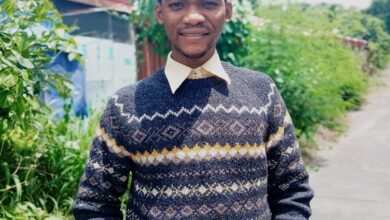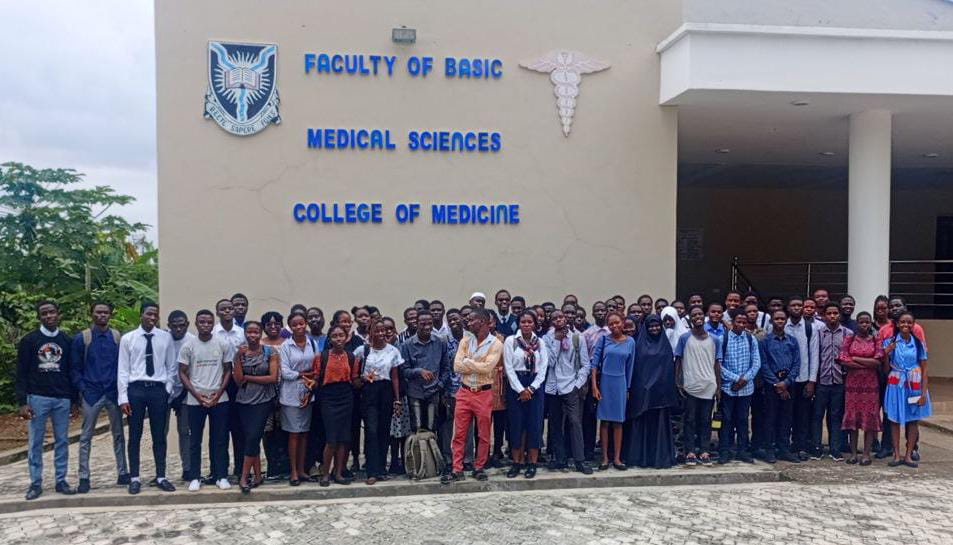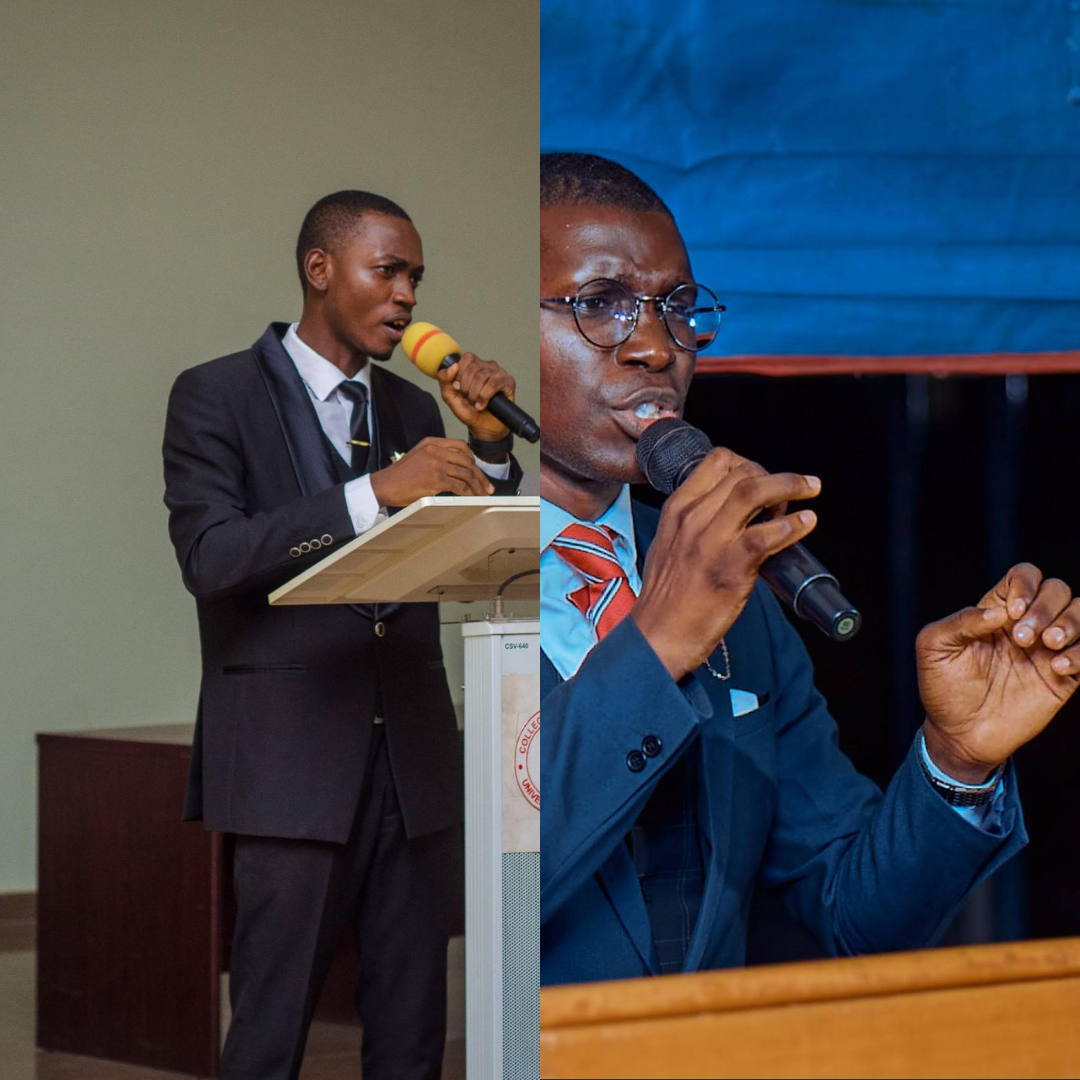Academic Stories (02): An Interview with Best Graduating Student and Provost Awardee, MLS Ridwan Agboola
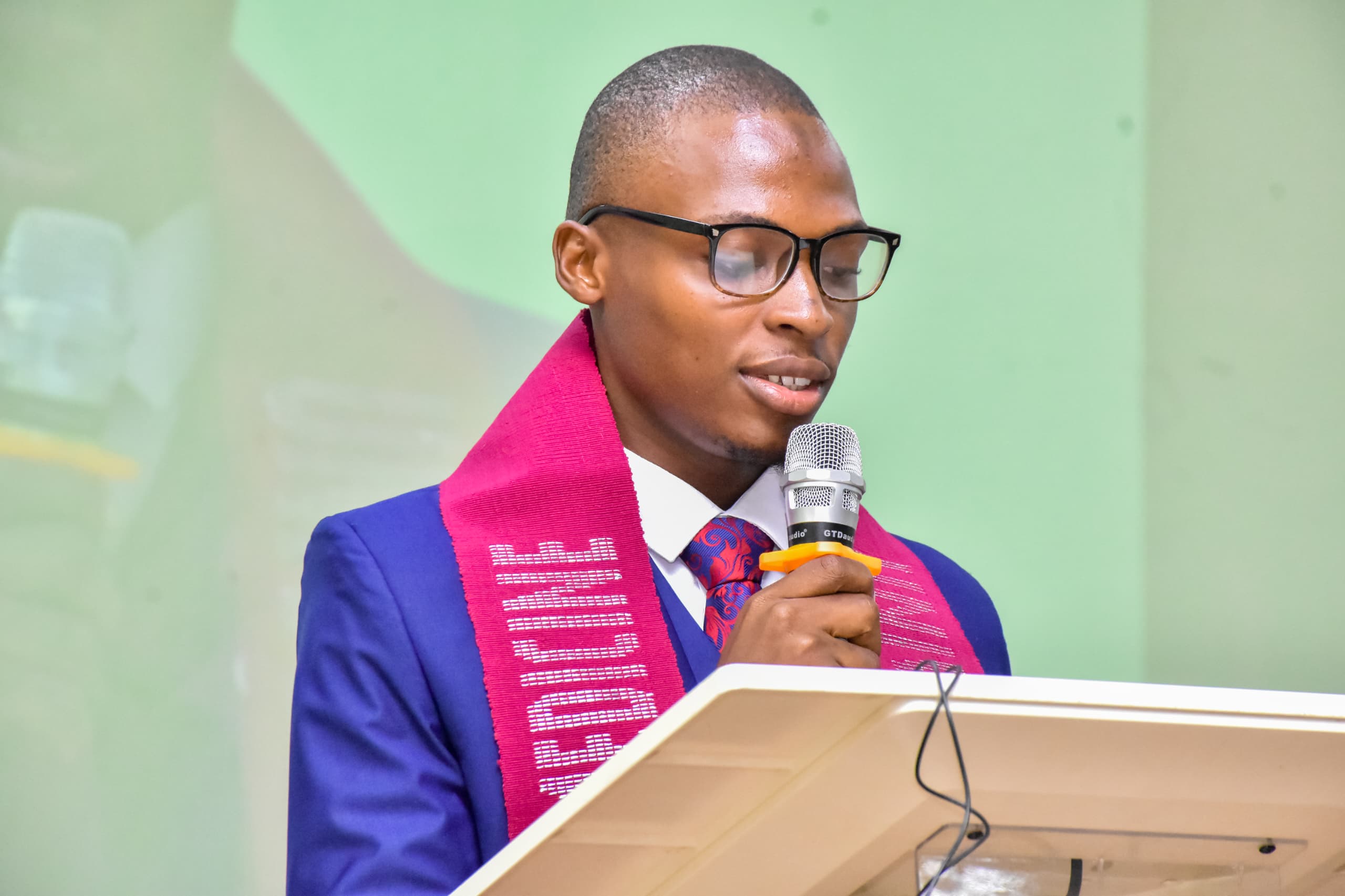
The quest for holistic education necessitates a balance between extracurricular activities and schoolwork. To many students, however, this proves to be one of the most difficult concepts to decipher, as the pursuit of one often leads to neglect of the other. This begs the question: Is there actually a balance? This conflict usually creates a distinction between people who perform excellently well in academics and those who do so in extracurricular activities. Still, some people seemingly do both with inexplicable ease. Outliers. Once in a while, we see people who defeat the preconceived expectation. Our interviewee, Medical Laboratory Scientist (MLS) Ridwan Agboola, is a great example, having distinguished himself from the rest by graduating as the best graduating student and a Provost awardee. In this interview, we uncover MLS Agboola’s journey of resilience, excellence and pure brilliance. Enjoy!
Q: Congratulations on your induction, MLS Agboola. Can you take us through your academic journey?
MLS Agboola: Thank you so much. I am Agboola Ridwan. I started my education in Ibadan at Ideal Foundation Nursery and Primary School. Then, I proceeded to Eclat International School when I relocated to another area. After primary school, I moved on to Command Day Secondary School, Odogbo Barracks, Ibadan for my junior secondary school education and then Islamic High School, Basorun. So that’s where I had my West African Senior School Certificate examination before putting in for admission into the University of Ibadan, and I gained admission to study Medical Laboratory Science.
Q: What inspired your interest in Medical Laboratory Science?
MLS Agboola: Originally, I planned to study medicine, and due to some reasons, I had to change my course of study. However, my primary goal was to save lives. So, I got information that Medical Laboratory Science is also an integral part of health care, diagnosis and patient outcome. Over the years, I’ve been able to understand better and see the importance of my course of study. For that, I’m proud of what I’ve studied.
Q: Going through the University of Ibadan is no easy task. Can you give a brief overview of what the journey was like?
MLS Agboola: The journey through the University of Ibadan has been one filled with bittersweet moments, because there were moments when I quite enjoyed the environment and relationships that I had with people, and then there were also moments when the struggle actually took its toll on me. There were periods when I felt discouraged, devastated. The academic pressure was intense at some point but overall, I was able to balance the bittersweet moments and the exciting ones. Overall, I really enjoyed my sojourn University of Ibadan.
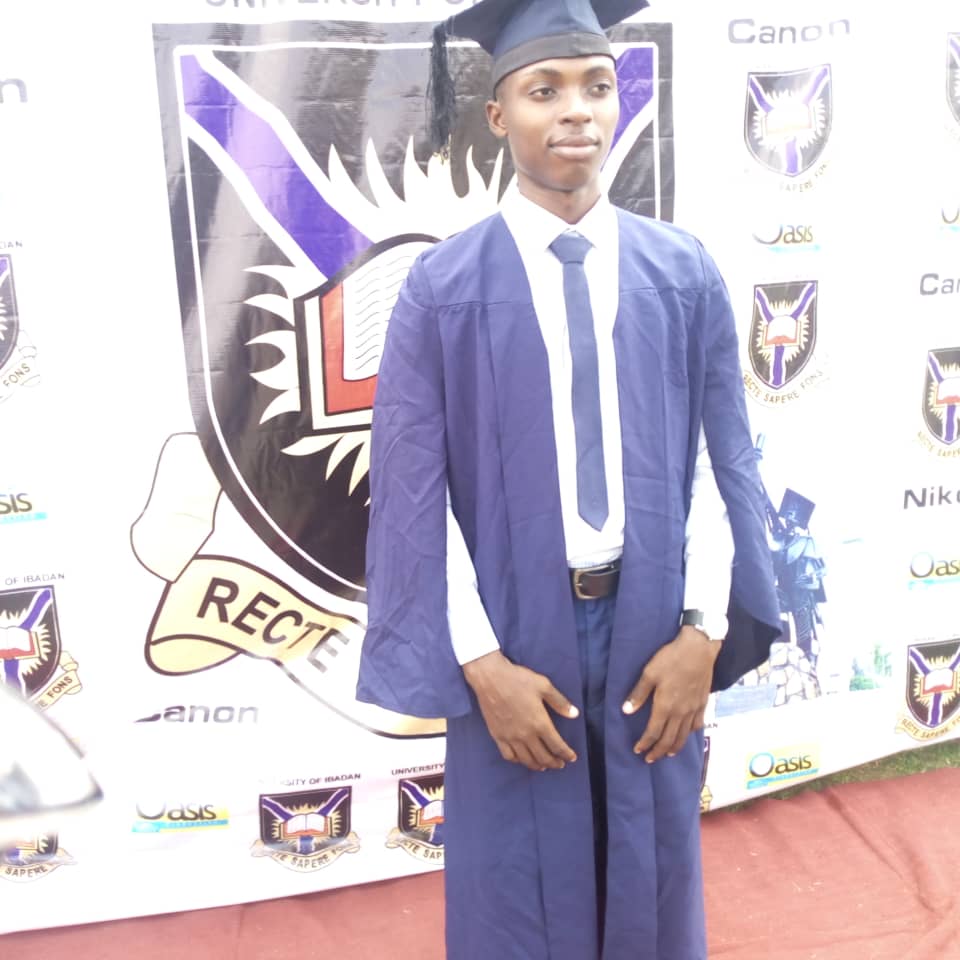
Q: What kind of student will you describe yourself as? Were you the type that was very playful and had a lot of friends, or introverted? Did you have everything planned or did you just go with the flow?
MLS Agboola: When I gained admission, my initial plan was just to focus on my academics. I would describe myself as someone who is not introverted, but I desired introversion at some point. I was outgoing and involved in various activities, both academic and extracurricular. I had quite a number of friends because I always sought information. Then, my position, over the years, as the class representative introduced me to a number of people, including lecturers and students. I would say I was ambiverted.
Q: How did an average day look for you?
MLS Agboola: I would split it into three or four. In 100-level, I would just wake up, go to classes [between 8 am to 3 or 4 pm] and then go to the mosque to pray at the scheduled time. It was in 200-level that my pattern began to change; I started engaging in extracurricular activities after classes or in between classes. Then, I had a religious commitment where I was leading a particular group. Things were a bit different in clinical school, too. I was usually ready for my day as early as seven, then I would be in class by eight. After classes, I went for my postings before going back to classes while juggling more extracurricular and co-curricular activities.
Q: You mentioned your extracurricular activities earlier. Can you give more details about the activities you participated in?
MLS Agboola: Alright. So, I’ll group the activities. There were religious activities− I was a publicity secretary for Circle of Prelim Muslim Science Students (CPMSS), a short-term Editor-in-Chief in my religious organisation’s press and the deputy chairman of the business committee in charge of the business outlet of my religious institution in UCH. As for leadership, I started as a member of the Community Health Awareness Programme, later became the treasurer and then the co-head in 2024. I also served in the Alexander Brown Hall assembly as an honourable and as the chairperson of the Budget Implementation and Appropriation Committee. I was the assistant class representative in 100-level and then the class representative from 200-level to my final year. Then, I started my haircut business in 2023. For social impact, I was the Director of Media and Publicity at Smilebuilders Initiative where I propagated the advocacy on non-communicable diseases and blood donation. I also promoted mental health awareness at Asido Campus Network. In sports, I played football for my class. I also played in the ABH League with Blazers Football Club as the goalie. Furthermore, I engaged in research which was instrumental to my academic progress. I belonged to the Ibadan Bacteriophage Research Team, where we conducted annotations and isolation in collaboration with the University of Pittsburgh in the United States. I also collaborated with students in biochemistry and MBBS to conduct various forms of research. Then last year and early this year, I served with the United Nations, where I worked with the United Nations Research Institute for Social Development to gather information about marginalised youths. I was the only Nigerian in that unit. Then I also worked with the United Nations Regional Office for East and Southern Africa to celebrate international volunteers.
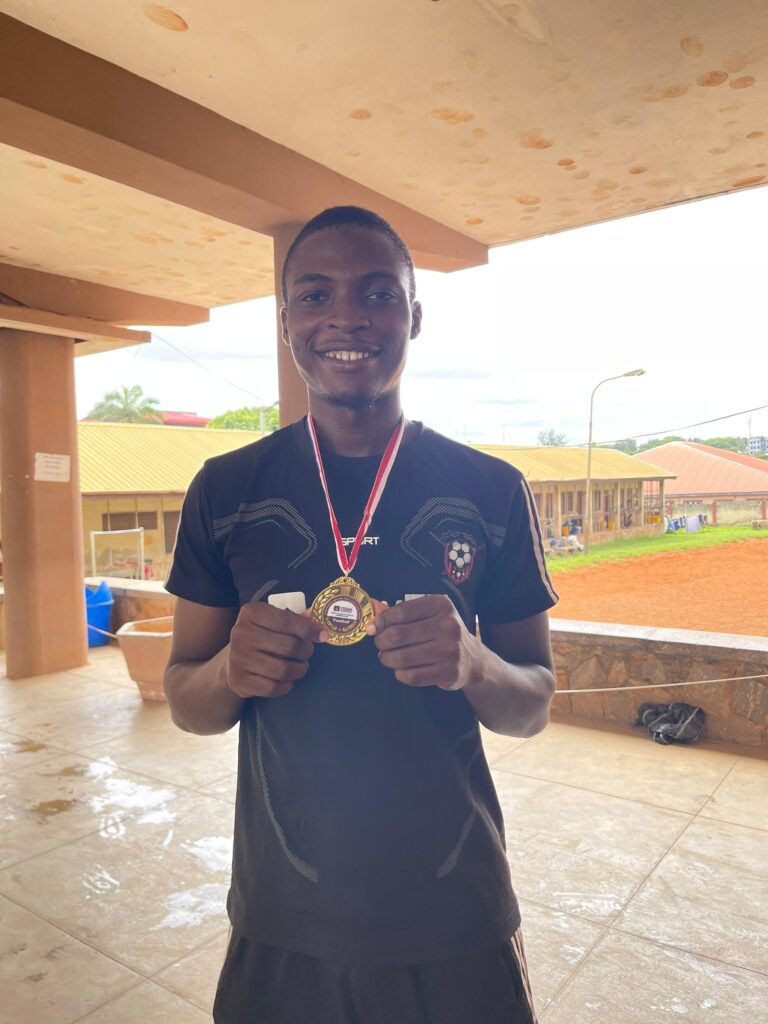
Q: Now, I’ll go to the question I am sure many people have for you. You graduated as the best graduating student and a provost awardee. How did you do it?
MLS Agboola: My goal has always been to be the best in what I do. I compete with myself and not others, so I never hoarded opportunities and materials that would have been helpful to others. I wouldn’t say it was totally my effort alone. God was very much involved in everything I did. I hated crash-reading. And then, I set micro goals for myself. For example, I focus on each test rather than the whole 100 marks for a course. When exams or tests are coming up, I find a way to say no to extracurriculars. It was an issue for me when I just started my haircut business because my first clinical exams came when I was beginning to gain customers. I disappointed many people during that period. I also collaborated with my classmate to organise tutorials, learning aids, and that really helped in me achieve my desired grades. And for the Provost Award, I made sure that I didn’t just engage in activities that don’t make an impact. The primary goal of the Provost Award is to celebrate excellent participation in community life, and the fact that I was able to participate in community awareness and campaigns that really impacted people got me the votes for the award. My efforts really helped me win the awards. For that, I am grateful.
Q: How did you feel when you got the news that you won the two awards?
MLS Agboola: So, the news came at different times. I knew I was going to be the Best Graduating Student immediately after the session ended. I already saw the progression as far back as 200-level, so when I got to 400-level, I saw the details of the CGPA of members of my class, and frankly, I was happy. I was because it’s a testament of years of hard work, perseverance, commitment and sacrifice. For the Provost Award, it was also a great feeling. The way the provost committee works is you submit your applications, you are screened and then your class votes. It was really exciting for me to see that my community impact was recognised adequately.
Q: What were your favourite and least favourite courses?
MLS Agboola: I’ve never even thought of this. *laughs*. My favourite courses were courses that were practical in nature because I could relate to them. My least favourite courses were courses filled with theories.
Q: What is your most memorable day in the clinic?
MLS Agboola: It’s really difficult to pick one. I can’t tell.
Q: Alright! What were the values you believe made you stand out academically and personally?
MLS Agboola: Talking about values, I think one of them will be my honesty, integrity, inquisitiveness and openness to learning. I would also add perseverance and resilience, because quite a number of things actually stretched me throughout the sojourn on campus.
Q: Did you ever have a romantic partner in the course of the journey? / What is your opinion about having romantic partners in school?
MLS Agboola: I did not, even though I tried. In my opinion, it shouldn’t limit you. It depends on the kind of person you are and the person you are with. It should be someone who is always interested in your progress and who will definitely find ways to ensure that being together does not disturb or distract you, but rather improves you. So, my opinion is that you should engage in it if it is going to work for you positively. It shouldn’t disturb anything.
Q: What do you think was the biggest misconception people had about you?
MLS Agboola: I think it’s going to be about my relationship status. People always assumed that I was in a relationship, but I wasn’t. Also, people seem to assume that I’m older than my age.
Q: Who were your biggest supporters through the journey?
MLS Agboola: First and foremost, I think that will be God. Then, my parents, my siblings, and the array of mentors that I had, including students, senior colleagues, lecturers, and even individuals outside my programme of study, have been important. I’ve been able to learn a lot, gain a lot of support and encouragement from a vast number of people that I cannot even list.
Q: Looking back, what were some of the biggest challenges you faced, and how did you overcome them?
MLS Agboola: The intensity that came with the final year was certainly one. I had to combine classes, postings, extracurricular activities and my project work, which was very key in the final grade. Each of these activities came with its own struggles. There were moments I had to go outside my comfort zone to get certain things done. I had to fix it by setting little goals for myself and rewarding myself adequately. I also cut down on the extracurricular activities I engaged in, because it was a critical moment in my life. Reevaluating my priorities was very important. I also sought guidance from my mentors to see areas of adjustment. By doing these, I was able to overcome to challenges [which I would rather call setbacks].
Q: If you had the chance to go back, is there anything you would do differently during your time in school?
MLS Agboola: Well, I think I did the best I could have done, but I believe some situations could have been handled differently. But overall, I don’t think I would change so much. I think I’ll just increase my impact and my dedication to my academics.
Q: What advice would you give to every student aspiring to succeed holistically in school?
MLS Agboola: The first thing I’ll say is that you should trust in God for your knowledge and your inspiration. That’s the only thing that would keep you going when everything is dark. Then I would also say you should know yourself and your limits. As you try to engage in extracurriculars, try not to burden yourself with too much at once. Compete with yourself rather than with others. Believe in yourself and never give up.
Q: We are now at the last question. Now that you are done with school, what is next for you?
MLS Agboola: The next thing is to go ahead with my mandatory one-year internship, after which I would go for NYSC. Those are my immediate plans right now.
Q: We congratulate you once again on your success. You are a beacon of light to many seeking balance in holistic education. Thank you very much, and we wish you success in the future.
MLS Agboola: Thank you very much for the invite. It’s an honour. I’m glad it’s coming from you guys. Thank you very much.

